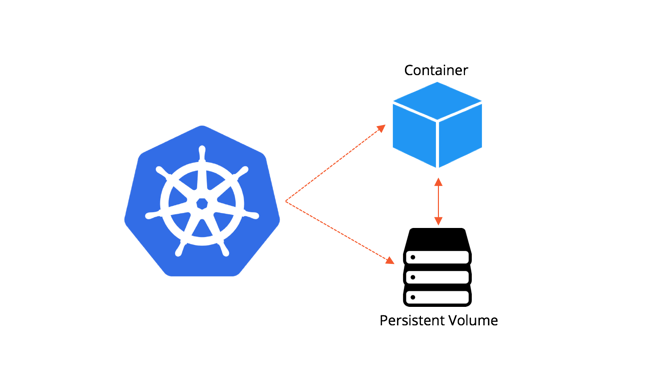Stateful Kubernetes with Saad Ali
Podcast: Play in new window | Download
Subscribe: RSS


In a cloud infrastructure environment, failures happen regularly. The servers can fail, the network can fail, and software bugs can crash your software unexpectedly.
The amount of failures that can occur in cloud infrastructure is one reason why storage is often separated from application logic. A developer can launch multiple instances of their application, with each instance providing a “stateless” environment for serving API requests.
When the application needs to save state, it can make a call out to a managed cloud infrastructure product. Managed cloud databases provide a reliable place to manage application state. Managed object storage systems like Amazon S3 provide a reliable place to store files.
The pattern of relying on remote cloud services does not work so well for on-prem and hybrid cloud environments. In these environments, companies are managing their own data centers and their own storage devices. As companies with on-prem infrastructure adopt Kubernetes, there is a need for ways to manage on-prem storage through Kubernetes.
Saad Ali is a senior engineer at Google, where he works on Kubernetes. He is also a part of the Kubernetes Storage Special Interest Group. Saad joins the show talk about how Kubernetes interacts with storage, and how to manage stateful workloads on Kubernetes. We discuss the basics of Kubernetes storage, including persistent volumes and the container storage interface.
Transcript
Transcript provided by We Edit Podcasts. Software Engineering Daily listeners can go to weeditpodcasts.com/sed to get 20% off the first two months of audio editing and transcription services. Thanks to We Edit Podcasts for partnering with SE Daily. Please click here to view this show’s transcript.
Sponsors
OpenShift is a Kubernetes platform from Red Hat. OpenShift takes the Kubernetes container orchestration system and adds features that let you build software more quickly. OpenShift includes service discovery, CI/CD, built-in monitoring and health management, and scalability. With OpenShift, you avoid getting locked into any particular cloud provider. Check out OpenShift from RedHat, by going to softwareengineeringdaily.com/redhat.
Datadog is a cloud-scale monitoring platform for infrastructure and applications. And with Datadog’s new Live Container view, you can see every container’s health, resource consumption, and running processes in real time. See for yourself by starting a free trial and get a free Datadog T-shirt! softwareengineeringdaily.com/
Deploy infrastructure faster; simplify life cycle maintenance for your servers; give IT the ability to deliver infrastructure to developers as a service like the public cloud. Go to softwareengineeringdaily.com/hpe and learn about how HPE OneView can improve your infrastructure operations.
GoCD is a continuous delivery tool created by ThoughtWorks. It’s great to see the continued progress on GoCD with the new Kubernetes integrations–and you can check it out for yourself at gocd.org/sedaily.


















